Is Maine Coon Hypoallergenic? Breed Facts
Maine Coons are known to be one of the largest cats. They are popular among cat lovers and many ask “is Maine Coon hypoallergenic?” The answer is no. Maine Coon is a heavy shedder and not a good option if you live with someone with cat allergies. They also produce high levels of Fel D1, which is the protein that causes allergic reactions among humans.
In this post, I will discuss this breed and how you can manage its shedding.
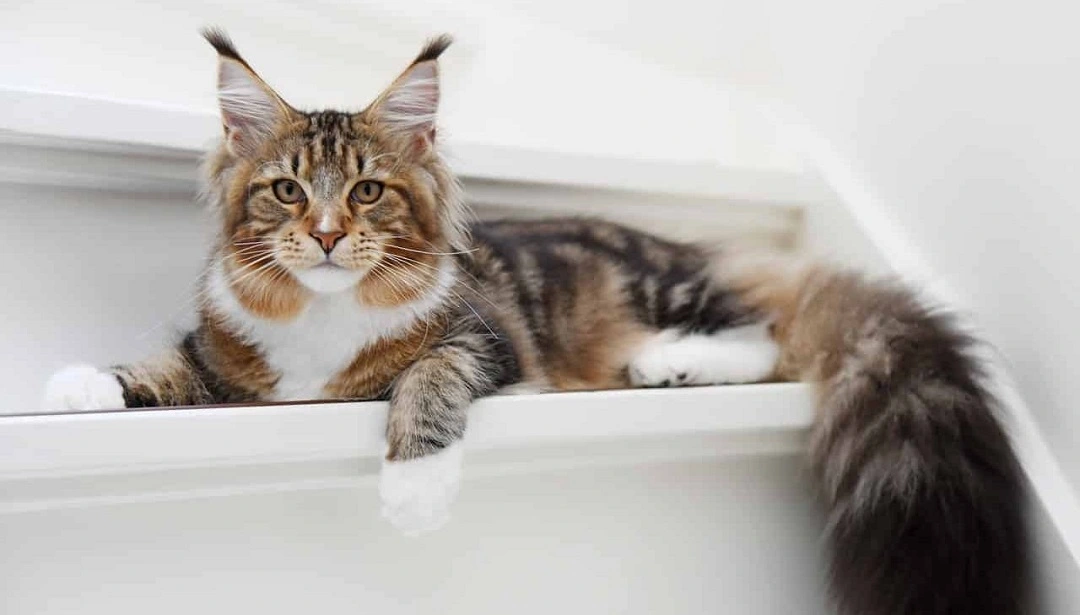
Is Maine Coon hypoallergenic?
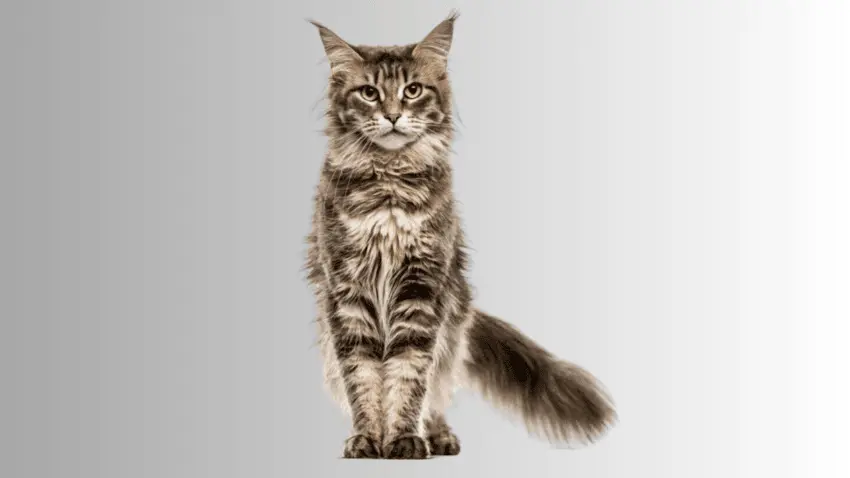
To be fair, no cat is 100% hypoallergenic. While there are cats that don’t shed, all felines will produce dander. This is the main cause of allergic reactions among those with so-called ‘cat allergies’.Contrary to what many think, it’s not the fur that causes cat allergies. It’s dander or the shed skin of a cat. When a person inhales it, the dander causes lung irritation, thus the adverse respiratory reaction.
This is the same reason why the long-haired Maine Coon and the hairless Sphinx can still cause allergic reactions. For someone with a very sensitive immune system, the cat breed will not really make a difference. Overall, Maine Coons are not the best breed for allergy sufferers. This massive cat is a walking allergen for people with an extremely sensitive immune system.
The real cause of Maine Coon allergy
But how come some people are allergic to Maine Coons while others are not? Our immune system is complicated, so are the causes of an allergic reaction.
For the most part, there’s a protein called Fel D1. This is found on most cats and is the usual cause of allergic reactions among people. This protein spreads whenever your cat licks its fur. It’s also present in a cat’s urine and scent glands.
However, there are cat breeds that produce less Fel D1. Maine Coons are usually not on the list, but it’s a different story if your kitty is a cross-breed.
Aside from that, each person has varying reactions to the Fel D1 protein. Some experience intense allergic reactions even on a small trace of the allergen. However, there are also some Maine Coon owners that develop a tolerance to it over time.
Also, you have to understand that the term ‘hypoallergenic’ isn’t absolute. It just refers to cats that are LESS LIKELY to cause allergic reactions. To some degree, these cats can still trigger adverse reactions, but only to very sensitive individuals.
Do Maine Coon cats have a lot of dander?
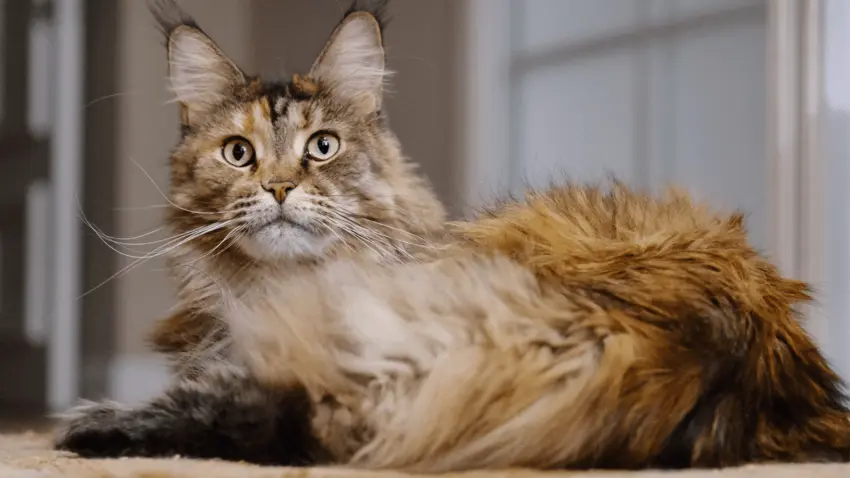
Unfortunately, Maine Coon cats are notorious for producing a lot of dander. Their large bodies, long fur, and dead skin cells are a recipe for an allergic reaction. Imagine your scalp shedding dandruff flakes, that’s how dander works for cats.
The difference is that their entire skin surface produces it. And since Maine Coons are large, they produce a lot more dander than smaller or medium-sized felines. Nevertheless, there are other cat breeds that produce less dander. Some of these are the Russian Blue, Cornish Rex, and Devon Rex.
How to manage your Maine Coon’s shedding and dander
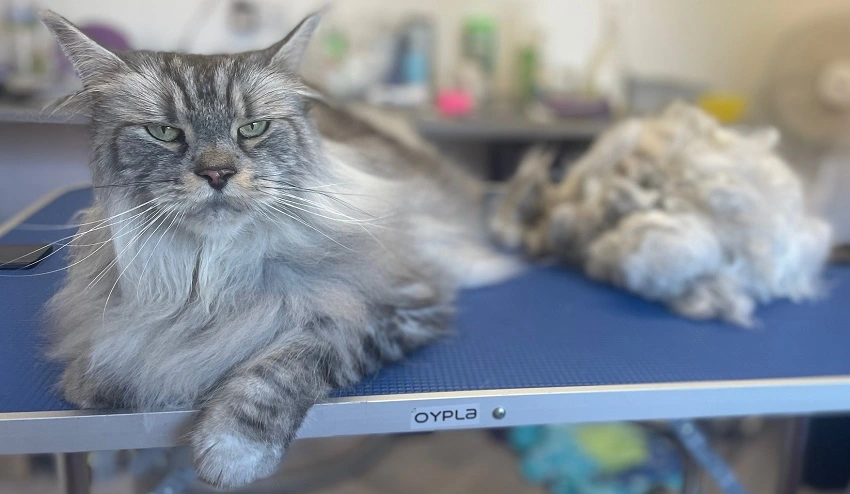
You have to know that Maine Coons are large cats. This is why it can be challenging to manage their level of shedding and dander.
To manage your Maine Coon’s dander and shedding, I recommend the following points:
-
Brush daily
Maine Coons are large and long-haired cats. It’s essential to brush them daily to remove shed hair and prevent dander from spreading all over your home.
-
Good diet
A proper diet is essential for all cats. For Maine Coons, it will help keep their skin and fur healthy. This means less shedding and less dander.
-
Reduce stress
Cats are known to pull their hair when they experience stress. When this happens to your Maine Coon, it will increase their allergen production.
-
Watch out for parasites
Just like any cats, Maine Coons are not invincible to parasites. You should always check their coat for the presence of ticks and fleas. You should act right away the moment you spot an infestation. This article can help you know how to remove a tick from cat
-
Regular vet checks
While your Maine Coon may seem healthy, it’s important to bring it to the vet regularly. This way, the vet can help you manage the cat’s shedding and dander problem.
What to do if you have allergies to your Maine Coon?
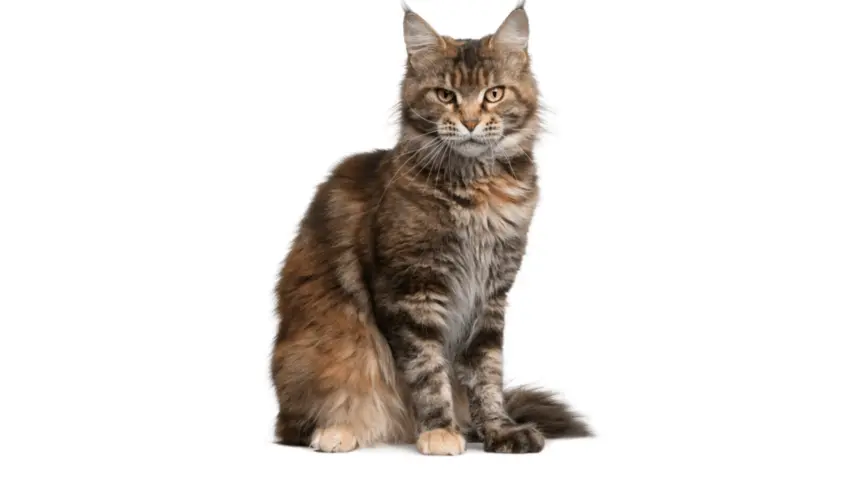
So you’ve brought your Maine Coon home only to find out that you’re allergic to it. But before you give up the feline, there are ways to make it work. Regular grooming is necessary to manage the shedding and dander that may trigger allergic reactions. Also, you shouldn’t let your Maine Coon get into your sleeping area, couch, and other things where you’re going to lie down and your nose at. Learn here how to groom a maine cat
It’s also important to pay attention to the overall cleanliness of your home. You must clean up spots where dander and fur of your Maine Coon may stick. You can also ask your doctor or the vet for allergy relief medications. This will let you live with your Maine Coon without having to suffer from allergies all the time.
Cat breeds that produce less dander
If Maine Coons don’t fit the bill when it comes to the hypoallergenic department, you can consider these alternative breeds instead. While these cats are not 100% hypoallergenic, they produce less dander and lower levels of the dreaded Fel D1:
-
Balinese
Although Balinese cats may seem like non-hypoallergenic, they actually produce less dander. They have an angora-like coat that sheds less than a Maine Coon.
-
Siberian
The Siberian cat is believed to be one of the breeds that produce the least Fel D1. Aside from that, this cat is friendly and can live with other felines like Maine Coons.
-
Sphynx
If you really want a pet cat that will not cause serious allergies, you should get a Sphynx cat. This hairless breed is an excellent alternative to Maine Coons. However, they are not for newbie owners because of their personality. Also, you need to manage their oily secretions.
-
Russian Blue
This cute cat may not be as long-haired as a Maine Coon, but they produce low levels of Fel D1. They are also sensitive to their owner’s mood, and they’re quite easy to live with. Russian Blue cats love playtime and being around their humans.
Are Maine Coon cats friendly?
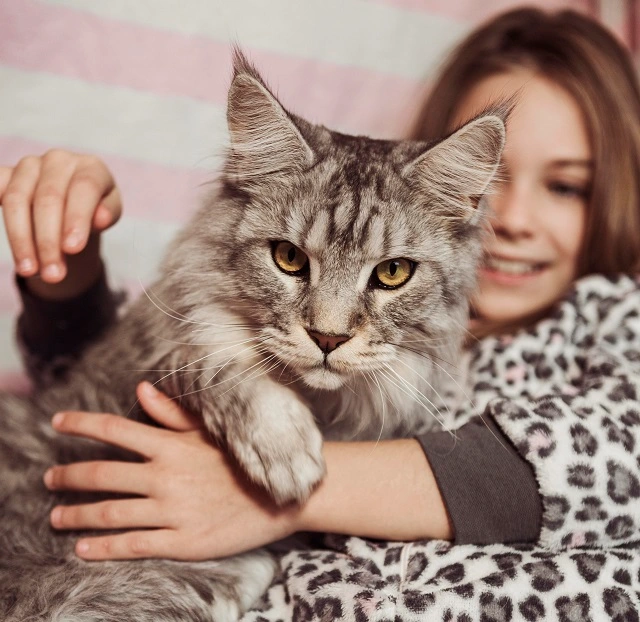
While Maine Coon cats are not hypoallergenic, they are one of the friendliest felines you can get. They are also intelligent and very adaptable to any living setup. One thing that attracts cat owners to this breed is their long and majestic coat. However, it’s also the main reason why some people tend to get allergic to Maine Coons.
You should remember that looks are not everything when it comes to Maine Coons. Before you get this breed, you have to make sure that you are prepared for their size. They also require intensive grooming to prevent mats, tangles, and the onset of allergies in your home. Despite the needed work, Maine Coons are worth it as house pets.
Conclusion
Is Maine Coon hypoallergenic? Although this cat isn’t suitable for allergic owners, they remain excellent pets. Maine Coons are intelligent, friendly, and loyal companions that are a joy to have at home. With proper grooming, you can manage their dander and Fel D1 secretion.
Do you own a Maine Coon? Share your experience in the comment section!
